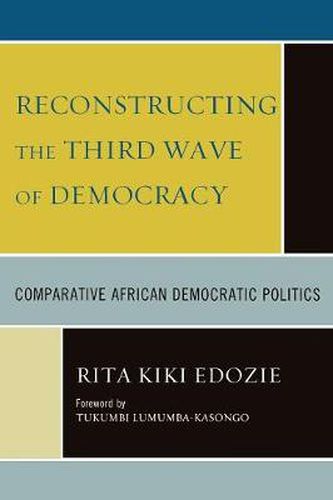Readings Newsletter
Become a Readings Member to make your shopping experience even easier.
Sign in or sign up for free!
You’re not far away from qualifying for FREE standard shipping within Australia
You’ve qualified for FREE standard shipping within Australia
The cart is loading…






Since the 1990s, trends in African politics require the realization that the public policy practice and the theoretical analysis of ‘democracy and democratization’ are becoming increasingly important tenets for understanding the contemporary political science of the region. Reconstructing the Third Wave of Democracy explains these new political processes and ideas. Author Rita Kiki Edozie identifies factors that Africans have encountered since the foundation of the modern African state and presents a critical analysis of African politics through the lenses of post-colonial discourse by uniquely employing the ideas of democratic theory to guide an analysis of the Continent’s democratic development and performance. Edozie presents an intra-regional comparative analysis of democratic politics in Africa in ways that few books on the same subject do for the continent. Her methodology for examining democracy in Africa reveals the dynamism of several country cases and several more regime experiences with democracy encountered from the post-World War II period to the current post-Cold War period.
$9.00 standard shipping within Australia
FREE standard shipping within Australia for orders over $100.00
Express & International shipping calculated at checkout
Since the 1990s, trends in African politics require the realization that the public policy practice and the theoretical analysis of ‘democracy and democratization’ are becoming increasingly important tenets for understanding the contemporary political science of the region. Reconstructing the Third Wave of Democracy explains these new political processes and ideas. Author Rita Kiki Edozie identifies factors that Africans have encountered since the foundation of the modern African state and presents a critical analysis of African politics through the lenses of post-colonial discourse by uniquely employing the ideas of democratic theory to guide an analysis of the Continent’s democratic development and performance. Edozie presents an intra-regional comparative analysis of democratic politics in Africa in ways that few books on the same subject do for the continent. Her methodology for examining democracy in Africa reveals the dynamism of several country cases and several more regime experiences with democracy encountered from the post-World War II period to the current post-Cold War period.